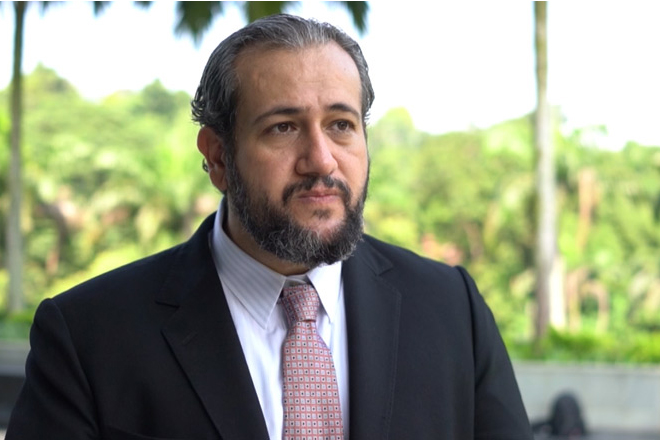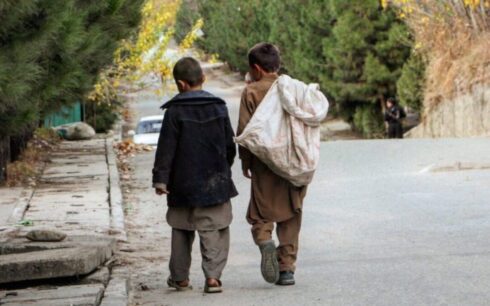The World Bank on Thursday announced the appointment of Faris Hadad-Zervos as its new Country Director for Afghanistan, effective immediately.
Hadad-Zervos succeeds Melinda Good, who has transitioned to a new role within the organization. Previously, Hadad-Zervos served as the Country Director for Maldives, Nepal, and Sri Lanka. “Mr. Faris Hadad-Zervos has been appointed the World Bank’s new Country Director for Afghanistan, effective today. He succeeds Ms. Melinda Good, who has taken on a new World Bank assignment. Mr. Hadad-Zervos’ most recent assignment was serving as the Country Director for Maldives, Nepal, and Sri Lanka,” the World Bank stated.
Hadad-Zervos, a U.S. national, has been with the World Bank since 1996. His career includes positions as Country Manager in Nepal, Malaysia, and Bolivia, and roles such as Manager of the Technical Cooperation Program with the Gulf Cooperation Council countries, Head of Mission for Iraq, and Operations Manager for the West Bank and Gaza. “A US national, he joined the World Bank in 1996 and held country manager positions in Nepal, Malaysia, and Bolivia. He also served as Manager of the Technical Cooperation Program with the Gulf Cooperation Countries, Head of Mission for Iraq, and Operations Manager for the West Bank and Gaza,” according to the World Bank.
Expressing his enthusiasm for his new role, Hadad-Zervos stated, “I am excited to continue our support to the people of Afghanistan, together with our partners. My first priority is to ensure that the World Bank continues supporting basic services that are so essential to the welfare and future prospects of the Afghan people such as healthcare, education, food security, and livelihoods support, with a focus on ensuring that women and girls benefit.” He also emphasized the importance of supporting the private sector and micro, small, and medium enterprises, particularly those operated by women, to foster job creation and inclusive growth. “I am also keen to ensure that we increase our support to the private sector and micro, small and medium enterprises – including those run by women – so the private sector can create much-needed jobs and realize its potential as an engine of inclusive growth,” said Hadad-Zervos.
The World Bank, in collaboration with the Afghanistan Resilience Trust Fund (ARTF), delivers nationwide support through UN agencies and international NGOs. Their efforts are concentrated on key areas including health, education, livelihoods, food security, and water. A significant focus is placed on women’s entrepreneurship and enhancing NGO capacity for service delivery. “The World Bank, along with the Afghanistan Resilience Trust Fund (ARTF), supports the people of Afghanistan through programs in the priority areas of health, education, livelihoods, food security, and water. This support is delivered nationwide through UN agencies and international NGOs. The World Bank also works with the private sector, supporting increasing financing for micro and small enterprises with a focus on women’s entrepreneurship, and building NGO capacity to deliver services,” the World Bank elaborated.
Adhering to a “principled approach,” these programs emphasize delivering services by women, for women, with robust internal fiduciary controls and independent monitoring to ensure the appropriate use of funds. The World Bank Group collaborates with multilateral and bilateral partners to coordinate aid for Afghanistan. “These programs adhere to the ‘principled approach,’ which focuses on delivering services by women, for women. All projects have internal fiduciary control and independent monitoring arrangements to ensure that funds are used for their intended purposes. The World Bank Group works with all multilateral and bilateral partners to coordinate aid for basic services for the Afghan people,” the World Bank outlined.
In addition, the World Bank supports the Afghanistan Futures program, which conducts research and analysis on the Afghan economy and society to inform international policy discussions and aid efforts. “The World Bank also supports the Afghanistan Futures program of research and analysis on the state of the Afghan economy and society to inform the international policy dialogue as the international community assesses how it can support the people of Afghanistan,” according to the World Bank.
With Hadad-Zervos at the helm, the World Bank aims to strengthen its commitment to improving the quality of life and economic prospects for the Afghan people, particularly focusing on the empowerment and inclusion of women and girls.





